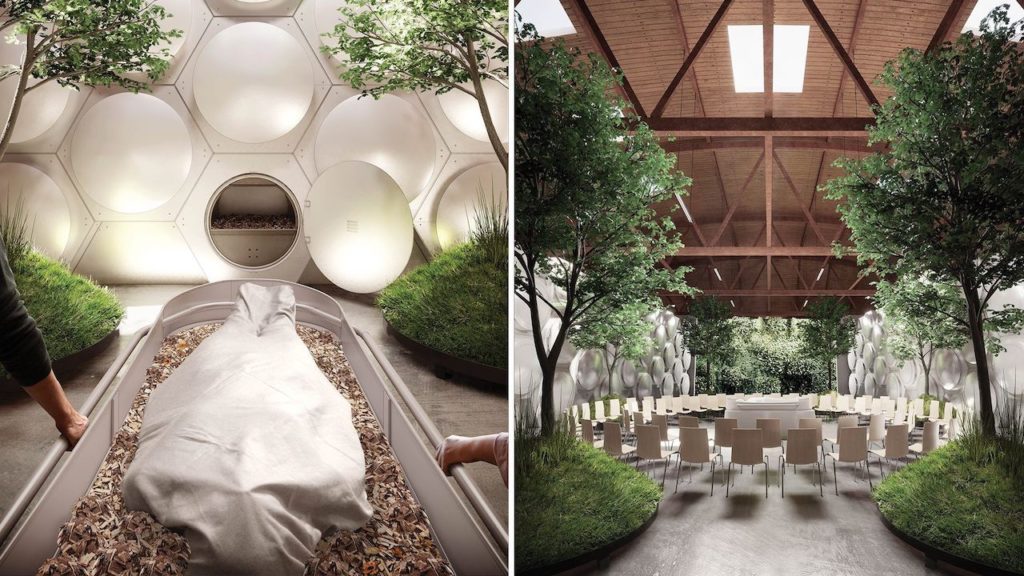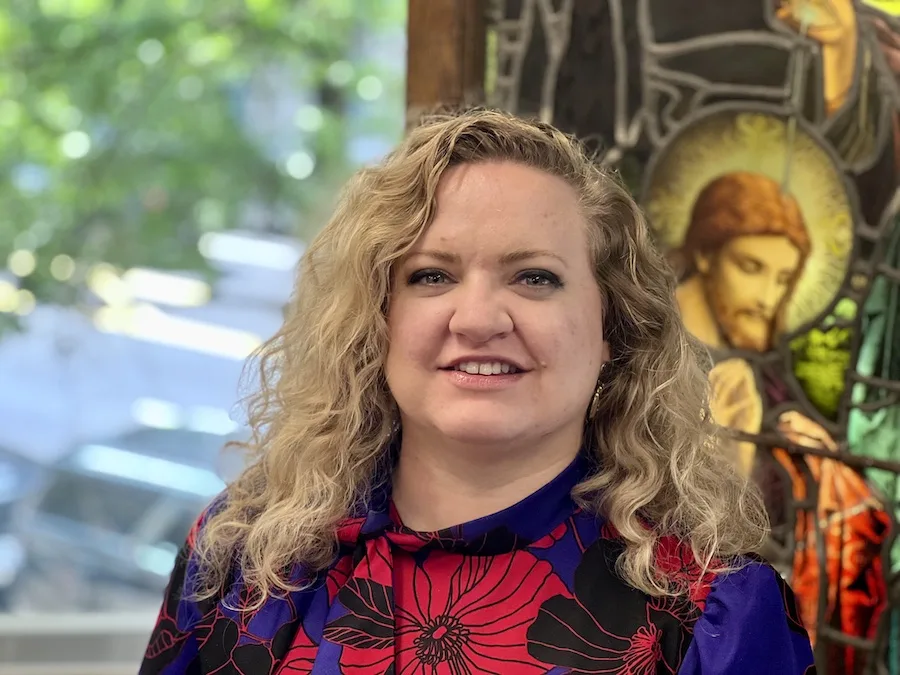What is the value of the human body? This is the question raised by a movement gaining traction to legalize human composting. On New Year’s Eve, the state of New York joined five other states in legalizing human composting. The process is exactly as it sounds, the body of the deceased is placed with other biodegradable materials and, over the course of a month, turned into soil.
This new manner of burial is being championed by environmental supporters, but it is also symptomatic of a culture that fails to properly value human beings and resists the need to contemplate the nature of mortality. The message of scripture provides a more optimistic view of death than the one perpetuated by practices such as human composting.
That the state of New York chose to sign the bill into law during the Christmas season is deeply ironic. Christmas time is the celebration of the incarnation of Christ. It is the time when Christians remember that God’s Son came into the world and took on human flesh. This not only has profound implications for salvation but also the way human beings should view their bodies. Not only did Christ have a real physical body but He still has a real physical body. It is glorified and perfected, and He will have it permanently. This has been triumphantly proclaimed by Christians throughout the centuries. A notable example is the hymn Crown Him with Many Crowns, “Crown Him the Lord of Love: Behold His hands and side; Rich wounds yet visible above in beauty glorified: No angel in the sky can fully bear that sight, but downward bends his burning eye at mysteries so bright.”
Christ’s willingness to take on and maintain a human body also has implications for how each person should view their body. With the fall, the body is subject to decay but is still part of the creation that God made and called good. That God made and values both the material and spiritual aspects of His creation is important. Both have been harmed by the fall, but both will also see restoration. For this reason, the body is not a disposable component, and it should not be treated cheaply. According to Fox News, Dennis Poust, executive director of the New York State Catholic Conference stated, “A process that is perfectly appropriate for returning vegetable trimmings to the earth is not necessarily appropriate for human bodies…Human bodies are not household waste, and we do not believe that the process meets the standard of reverent treatment of our earthly remains.”
The push to treat the remains of the deceased as no more than compostable material is symptomatic of a culture that has gone down the path of completely devaluing the body and divorcing it from the person. If the body has no intrinsic value, its value instead is limited to the way it is molded and shaped to fill the superficial desires of human beings. It also ignores the reality that, while all creation is valuable, there is a hierarchy to the creation order. The idea of human composting flips the creation mandate on its head and treats human beings as though they are subservient to creation rather than persons who care for creation by “ruling” and “subduing” it. Finally, it is the action of a society that desperately wants to avoid the reality that they must contemplate their mortality. By acting as though they will live on as part of a tree or some other vegetation, persons never come to terms with the fact that they will indeed live on eternally, but as full persons, persons who will either enjoy eternity in communion with God or persons that will experience eternity apart from Him, and in either eternal state they will have a body.
As we end the Christmas season, Christians should reflect on the beauty of the incarnation and all its implications. Christ Himself took on flesh, and this once and forever settles that question of its value. God loves the physical world He created, and it will be redeemed. This includes the bodies of those who died trusting in Christ. Their bodies will be raised on the last day, perfected and glorified. In fact, this should be a source of comfort for those with loved ones whose bodies were struck by extreme forms of decay in this life. For those whose bodies have been destroyed or ravaged by disease, this too matters to God. Their bodies are not waste to be forgotten but part of the creation that He will restore. In the words of the great Christmas hymn Hark the Herald Angels Sing, “veiled in flesh the Godhead see; hail th’Incarnate Deity, pleased with us in flesh to dwell, Jesus, our Emmanuel.”
Sarah Diane Stewart is a Methodist laywoman from Parkersburg, WV who now resides in the Washington, D.C. region.
More:
Our Bodies Give Witness: https://juicyecumenism.com/2022/10/04/body-composting/
Christian Burial, Easter Resurrection and the Image of God: https://juicyecumenism.com/2019/04/19/rethinking-significance-of-burial/
Approaching Death as Christians: https://juicyecumenism.com/2019/06/25/gilbert-meilaender/






Comment by David on January 10, 2023 at 8:02 am
We delude ourselves if we think that bodies remain funeral home fresh for any length of time. Decay is the order of things. Depending on the acidity of local soils, even bones dissolve. There are no bodies to be found at the sites of famous shipwrecks such as the Titanic. An early paternal ancestor of mine was buried in Philadelphia. Eventually, Temple University desired the land for a parking lot and the remains were dug up, removed out to Rockledge, PA, and the marble monuments thrown into the Delaware River in the 1950s. His father’s remains from perhaps 1808 were likely relocated two or three times from Center City church cemeteries and eventually lost in the process. Of course, there may have been nothing left to rebury at some point.
Comment by George on January 10, 2023 at 11:34 am
As I grow older, the strangeness of the world becomes even stranger. Up in Canada they are encouraging folks who are suffering from illnesses to end it all and elect to be euthanized. They fail to explain that this is because it will save millions of dollars in health care costs for their government run socialized medicine. It has nothing to do with relieving pain and suffering. Just $$$$$ The composting of bodies will pick up here when our own government sees the benefits. I can see going to the garden center and finding aunt Karen and grandma’s remains stacked on pallets. What’s next? Soylent Green ? Strange world we live in.
Comment by Eric Lytle on January 11, 2023 at 10:41 am
Slightly off-topic: The LGBT activist Robyn Henderson-Espinosa, who has been mentioned in several of your articles, is now claiming to be a transgender male named Roberto Che Guevara. It is the height of irony that a woman who has built her career bashing “patriarchy” now identifies as a male.
Comment by Stephanie Jenkins on January 16, 2023 at 3:55 pm
disgusting
Comment by Jun Valmores on January 22, 2023 at 9:14 pm
What else to expect from culture’s nihilism.
Comment by Baby Catching Funeral Director on April 15, 2024 at 10:23 pm
I see a VERY different perspective. I feel this form of disposition honours how God designed our bodies to break down. This gives the decedent not only the peace of knowing they’re doing something beautiful for the earth that sustained them by giving back to the land, but the family left behind gets a part of their loved one that can be given back to give life through a memorial tree or memorial flower garden. Better than a canister of ashes sitting on a mantle doing nothing to bring forth life. Just my thoughts as someone who intends to bring this to fruition in N CA.